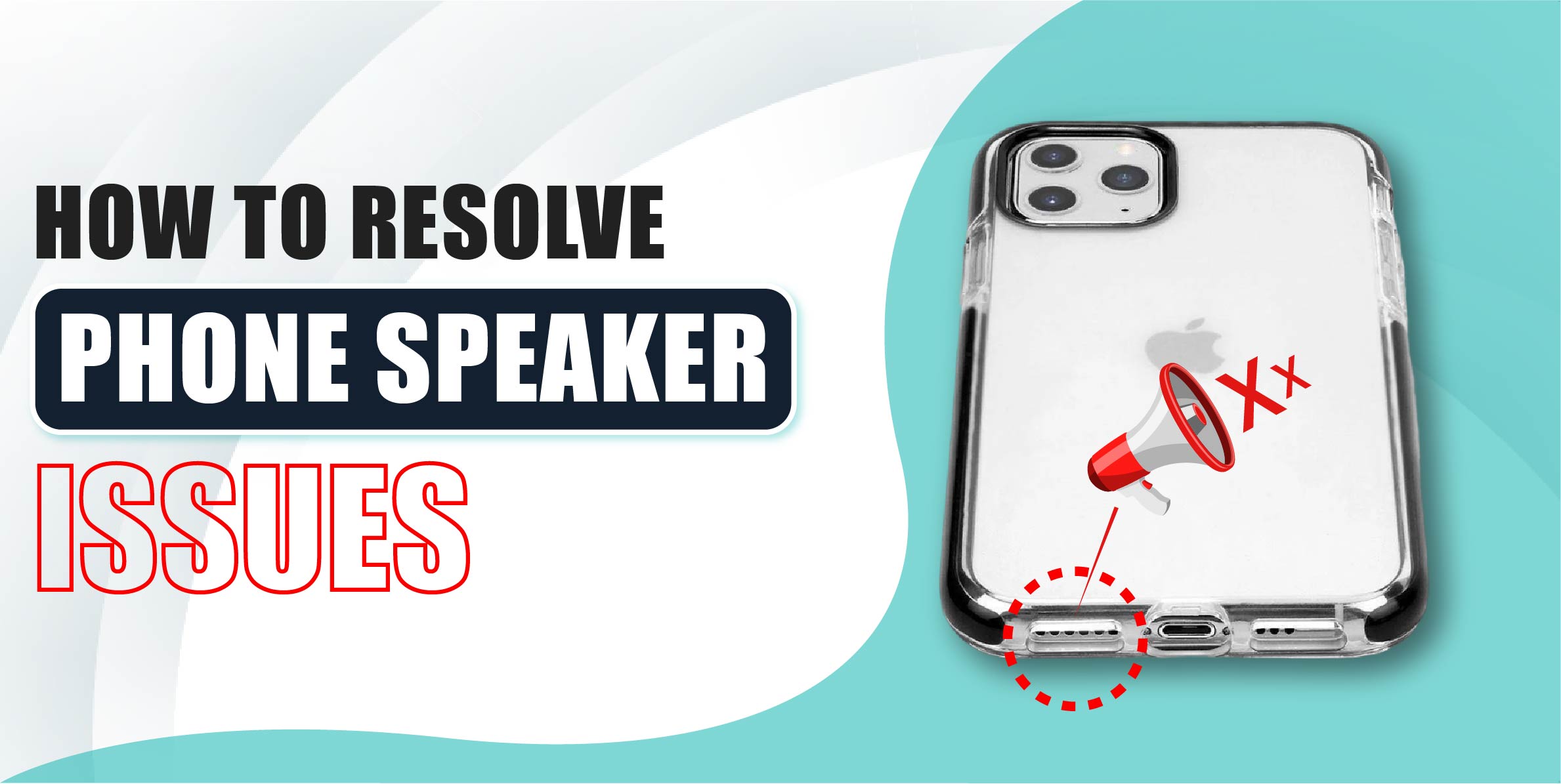
Smartphones’ speakers play a crucial role in communication, media consumption, and notifications. However, speaker issues can occasionally arise, affecting the clarity and quality of sound.
Whether your phone speaker is crackling, muffled, or entirely silent, understanding how to resolve these problems and maintain speaker performance is essential for a smooth user experience.
This article will guide you through common phone speaker issues and provide tips on keeping your speaker in perfect condition.
Common Phone Speaker Issues
Muffled or Low Sound
If your phone’s speaker produces muffled or low sound, it could be due to several reasons. Dust or debris accumulating in the speaker grill can obstruct sound output. Alternatively, software settings might be improperly adjusted, leading to reduced volume levels. Faulty hardware components or outdated firmware could also contribute to this issue.
Crackling or Distorted Sound
Crackling or distorted sound often results from physical damage or interference. Over time, exposure to moisture, drops, or impacts can affect the speaker’s internal components, causing distortion. In some cases, software glitches or conflicts with audio settings can also lead to unwanted noise.
No Sound at All
If your phone’s speaker produces no sound, the issue might be related to hardware malfunction or a software problem. This could stem from a damaged speaker, disconnected internal components, or incorrect settings. In some instances, it could also be due to issues with connected accessories or external audio sources.
How to Resolve Phone Speaker Issues
Clean the Speaker Grill
Dust and debris can accumulate in the speaker grill, affecting sound quality. Gently clean the speaker area using a soft brush or compressed air to remove any particles. Avoid using sharp objects or excessive force, as these can damage the speaker components.
Check and Adjust Volume Settings
Ensure that your phone’s volume settings are correctly adjusted. Go to the sound settings in your phone’s menu and verify that the volume levels are set appropriately. If you’re using external apps or media, ensure that the volume settings within those apps are also adjusted correctly.
Restart Your Phone
Sometimes, a simple restart can resolve software-related issues affecting the speaker. Restarting your phone can refresh system processes and clear temporary glitches that might be causing sound problems.
Update Software and Firmware
Outdated software or firmware can cause various issues, including problems with sound. Check for and install any available updates for your phone’s operating system and applications. Manufacturers often release updates to address bugs and improve performance.
Check for App Conflicts
Certain apps might interfere with your phone’s sound settings or functionality. Try to identify if the issue occurs with specific apps or after installing new ones. If so, consider updating or uninstalling the problematic apps to see if that resolves the issue.
Inspect for Physical Damage
Examine your phone for any signs of physical damage, such as cracks or dents, particularly around the speaker area. If you suspect hardware damage, it’s best to consult a professional technician for repairs or replacements.
Test with External Accessories
Connect your phone to external speakers or headphones to determine if the issue is isolated to the internal speaker. If sound is clear through external accessories, the problem likely lies with the phone’s internal speaker.
How to Keep Your Phone Speaker in Perfect Shape
Avoid Exposure to Moisture
Water and moisture can damage your phone’s speaker components. Keep your phone away from liquids and use a protective case to minimize the risk of water exposure.
Use a Screen Protector
A screen protector can help shield the speaker area from dust and debris. Ensure that the protector does not cover or obstruct the speaker grill.
Regularly Clean Your Phone
Regularly clean your phone to prevent dust and grime from accumulating. Use a soft, dry cloth to wipe down the exterior and avoid using abrasive cleaners.
Handle with Care
Avoid dropping or subjecting your phone to excessive impacts. Handle your phone with care to prevent physical damage to the speaker and other internal components.
Store in a Safe Place
When not in use, store your phone in a safe and clean place. Avoid leaving it in extreme temperatures or environments where it could be exposed to dust and moisture.
Use Quality Accessories
If using external accessories such as cases or screen protectors, ensure they are of high quality and specifically designed for your phone model. Poorly made accessories can sometimes interfere with speaker performance.
TechCity for Phone & Laptop Repair
For any phone repair needs, contact TechCity in Australia. Their expert technicians handle a wide range of issues, from speaker problems to screen replacements. With fast, reliable service and a commitment to quality, TechCity is your go-to solution for getting your phone back in top shape.
Conclusion
By addressing common phone speaker issues and following these maintenance tips, you can ensure optimal performance and longevity of your device’s speaker. Regular care and prompt resolution of problems will help you enjoy clear, crisp sound from your phone, enhancing your overall user experience.